Posted on 6/23/2018
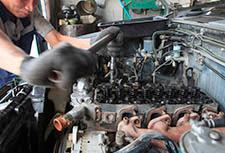
Did you know that your car uses a variety of specialized fluids to help ensure its smooth, safe and reliable operation? While it is gas that you put in the tank, these other fluids have just as important of jobs. If you ever spot something dripping from your car it is critical that you visit a local auto repair shop for proper diagnostics and repairs. Putting off automotive fluid leak repair could result in massive damage to your car. Here's a look at five of the most common vehicle fluid leaks. Oil leak Oil is the lifeblood of the engine. It is what keeps the moving parts lubricated to prevent harsh metal on metal friction. If you spot a black or dark brown spot on your driveway it is likely engine oil. While a small leak won't be immediately devastating, it is necessary to have it repaired to prevent additional oil loss. Coolant leak If you see a bright green or yellow liquid dripping from your car that has a sweet smell to it, then it is likely coolant. Coolant is pumped through th ... read more
Posted on 6/11/2018

No matter what you drive it is going to need routine service at one point or another. All cars, trucks and SUVs require a variety of specialized treatments at certain mileage points to help prevent unsafe operating conditions and breakdowns. While you should never skip any scheduled auto maintenance required by your vehicle, the missing out on the following could be particularly devastating to your vehicle. Check your owner's manual to see when your car is due for certain services. Oil Change Oil changes do a couple things for your vehicle. First of all, during an oil change the old oil is drained from the motor, bringing with it engine buildup that can decrease performance. Secondly, the oil filter is changed, ensuring proper oil flow throughout the engine. Finally the new oil that is added to the motor will ensure that there isn't excessive friction between the moving parts. Missing oil changes can result in massive engine wear and tear, resulting in a need for extensive engine repa ... read more
Posted on 5/30/2018
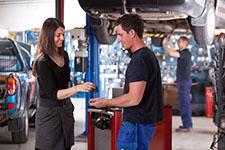
It is pretty easy to control your car, isn't it? If it weren't for bends in the road it seems that new vehicles could essentially drive themselves. Imagine a road with no bumps, no curves, and no other obstacles; a brand-new car could handle this drive with ease since it is designed to cruise straight as an arrow for as long as can be. However, roads like this just aren't the case. But if you do find yourself on a straight road and your car is seemingly driving itself to the curb it may be caused by poor wheel alignment. If you experience any of these symptoms of alignment trouble be sure to head to a local auto shop right away to restore the drivability of your vehicle. Pulling Sensation As mentioned, a car that drives to the side of the road without any human interaction is likely suffering a symptom of a bad alignment. This phenomenon is referred to as vehicle pulling. You may experience hard pulling, which makes it feel as if you are fighting with the steering wheel to keep the car ... read more
Posted on 5/2/2018
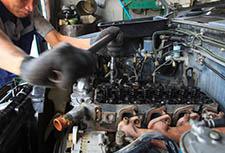
One of the biggest repairs that you may ever need to do for a vehicle is conduct an engine rebuild. This is often an extreme service, but it can be much cheaper than the alternative, which is often to simply by a new car. During a rebuild an engine is completely disassembled and rebuilt, returning it to a like new condition. So when should a rebuilt be completed, and how do you know if it is time for an engine rebuild? Read on. Reasons for an engine rebuild There are a couple main reasons why an engine rebuild may need to be completed. Worn engine bearings - The engine bearings support the motion of the moving engine parts, such as the crankshaft, rods and pistons. They do wearout after many, many thousands of miles of use, but their wear is acceled if the engine is ran with low oil. Poorly seating piston rings - The piston rings seal in the expanding gases created by the burning of gas in the engine. If they don't seat properly oil can get into the combustion chamber. Signs it i ... read more
Posted on 4/22/2018
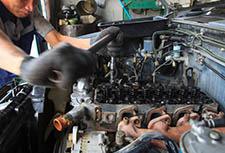
Within seconds of turning on your vehicle's engine the motor heats up to incredibly high temperatures. If it weren't for the cooling system the engine would essentially melt itself. The cooling system, which includes such parts as the radiator, cooling fan, thermostat and water pump, pushes coolant through the engine to trap and remove heat. It is important that you get to a repair shop as soon as possible if you notice any of the following signs of cooling system failure. Rising temperature gauge One of the first signs you may notice if your car's cooling system is not operating as it should is a dashboard engine temperature gauge rising into the red zone. If you notice a skyrocketing temperature gauge be sure to pull over as soon as possible to allow the engine to cool down before major damage occurs. Steaming hood If you miss the rising gauge it is likely you will encounter white steam pouring out from under the hood. This is a positive sign that your car is currently overheating ... read more
Posted on 4/2/2018
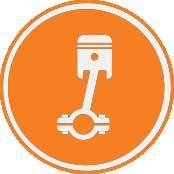
Your diesel work truck hits the road day in and day out, putting up with dirty conditions that can result in numerous engine problems. When it comes to diesel repair and maintenance it is important that you leave the service to professional technicians. Diesel engines run much differently than traditional gasoline motors, so they require a special skill set or else the motor may end up in even worse shape. Be aware of the following issues, because if you begin to notice performance issues with your vehicle it could be related to one of them. Incorrect Engine Lubricants One of the most common causes of hard starting is the use of improper lubricant, A.K.A, engine oil. This is because if you use the wrong oil it may allow oxygen into the hydraulic system that assists the fuel injection unit, creating a foam that results in fake fuel injector pressure. It is necessary to use the correct oil as recommended by the manufacturer for different seasons of the year as well due to humidity and o ... read more
Posted on 3/30/2018

When a vehicle is being engineered the designers take into account the maintenance it will require, including at what mileage point, in order to ensure it remains in top operating condition. These services are known as factory scheduled maintenance and include a variety of different services. It's pertinent that you follow your vehicle's maintenance schedule in order to get the most out of your automotive investment. These are a few of the most common forms of scheduled maintenance that all vehicles need. Oil Changes The most frequent service required by all vehicles is the oil change. Necessary between every 3,000 to 7,500 miles, depending on what you drive, oil changes ensure proper engine lubrication to prevent harsh metal on metal friction. Oil changes also help keep the engine clean. 30/60/90K Maintenance The general term that is applied to factory maintenance is 30/60/90K maintenance, because of the fact that it is generally necessary every 30,000 miles. These service check ups i ... read more
Posted on 3/4/2018
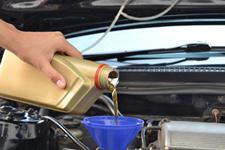
The summer months tend to see people spending a lot more time in their cars than normal. Summer vacations often call for road trips to places near and far. But before you jump into your car and hit the highway be sure the vehicle is up to the task and is going to get the best fuel efficiency possible. The following tips will keep you on the road longer and out of the gas station. Auto Maintenance Tips All cars require routine maintenance to ensure that they are continue to run great. The following ideas are fairly simply and will help improve your MPGs. Inflate your tires - Tires that are underinflated take make engine power to spin. Be sure to check your tire pressure and if necessary, pump them up! Keep up with routine auto maintenance - Check the service schedule inside your owner's manual to see when your car is due for service. By keeping up with factory maintenances you'll keep your engine running at peak performance. Change the spark plugs - If it has been a few years since thi ... read more
Posted on 2/25/2018
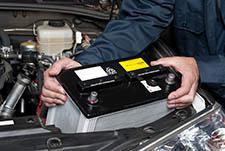
While it is important to follow the maintenance suggestions provided in your vehicle's owner's manual it is important to understand that this may not cover all of its needs. In order to keep your car or truck running right you may find it necessary to provide it with a tune up. The term tune up dates back to the origins of the automobile and its meaning has evolved right along with the car itself. It used to refer to tuning the carburetor, but vehicle's today don't use this part. Nowadays it is a general term that references small services to keep your vehicle performing its very best. When do you need a tune up? If your car is between scheduled services, such as 30/60/90K maintenance, but isn't running as well as it normally does, then it is probably a good idea to visit the auto shop. Common performance issues, such as a rough idle, difficulty starting or even a decrease in fuel efficiency are all indicators that your car could benefit from some sort of maintenance. What are tune up ... read more
Posted on 2/2/2018
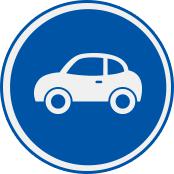
While the standard transmission is quickly, and for some people, unfortunately, becoming a thing of the past, many folks still prefer to use three pedals instead of two. There are benefits to driving a stick shift, especially when it comes to late model or older vehicles. They often get better gas mileage and you simply have better control over your vehicle's acceleration.While new automatic transmission vehicles are ran extensively by high tech computers, there are still a few manufacturers that offer a stick, mainly in their commuters or high performance vehicles. Whatever you drive, so long as it's a manual transmission, it is important to pay attention for signs of clutch trouble. That third pedal and the parts behind it do need attention from time to time. If you run into any of the following three problems be sure to make an appointment for clutch repair right away. Burning smell while shifting One of the most common signs of clutch trouble is usually reminiscent of first learnin ... read more